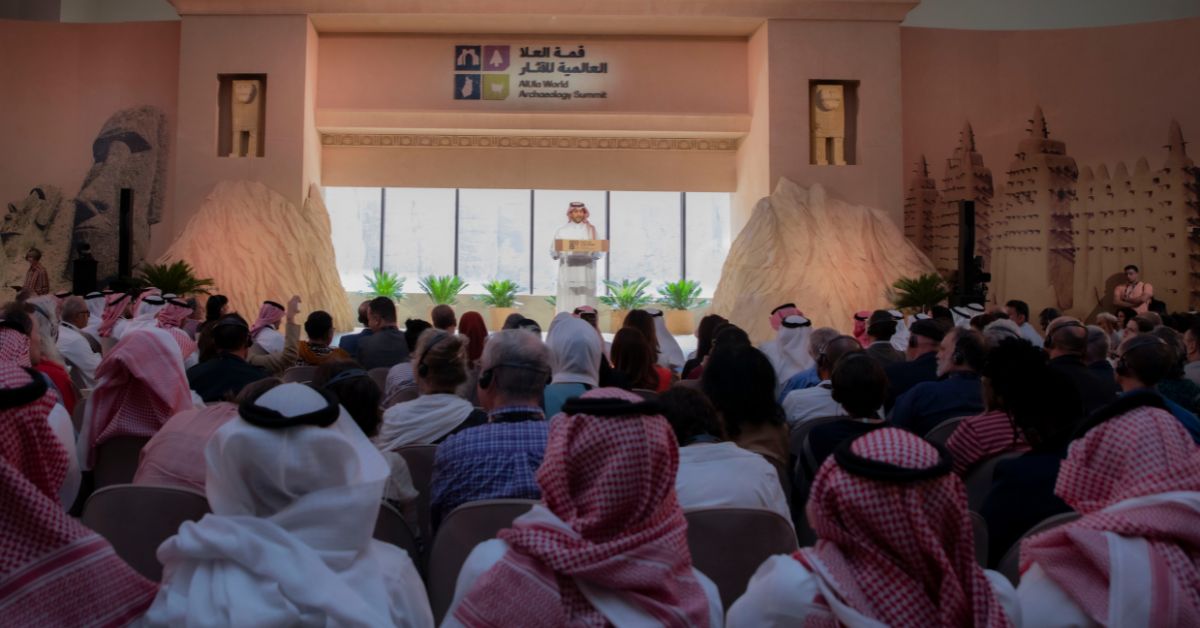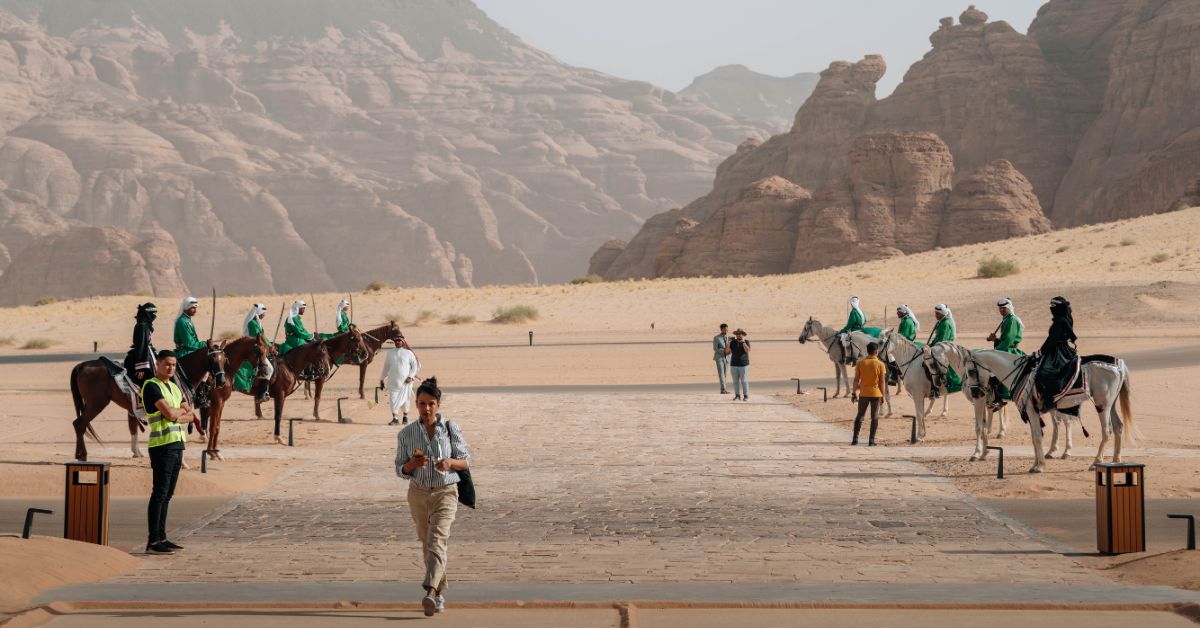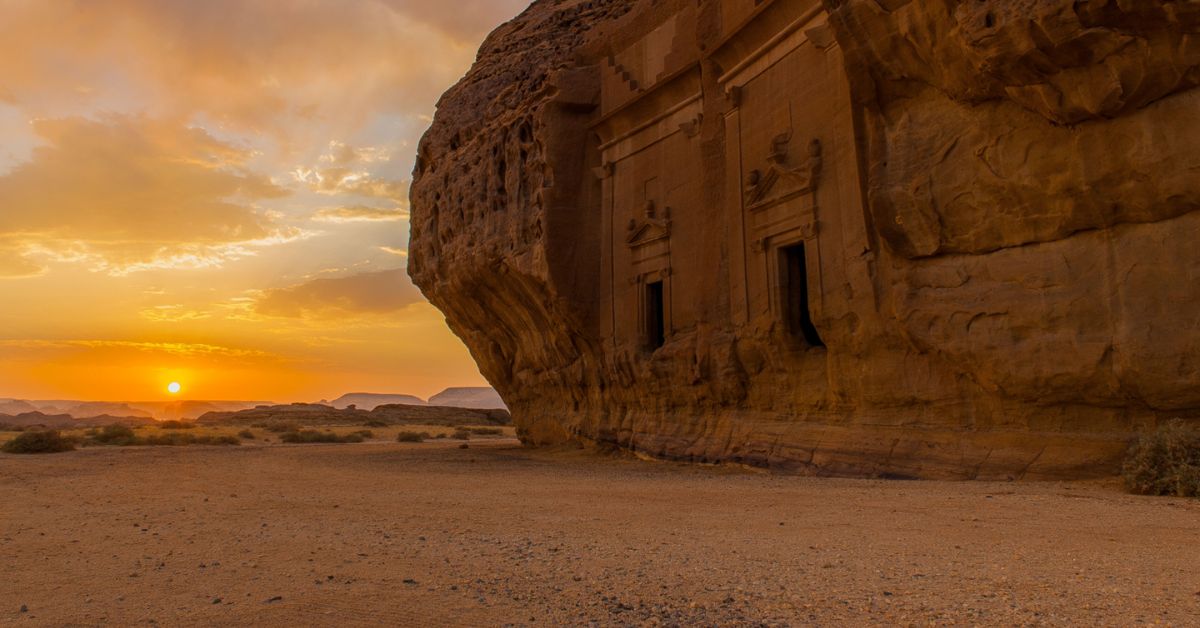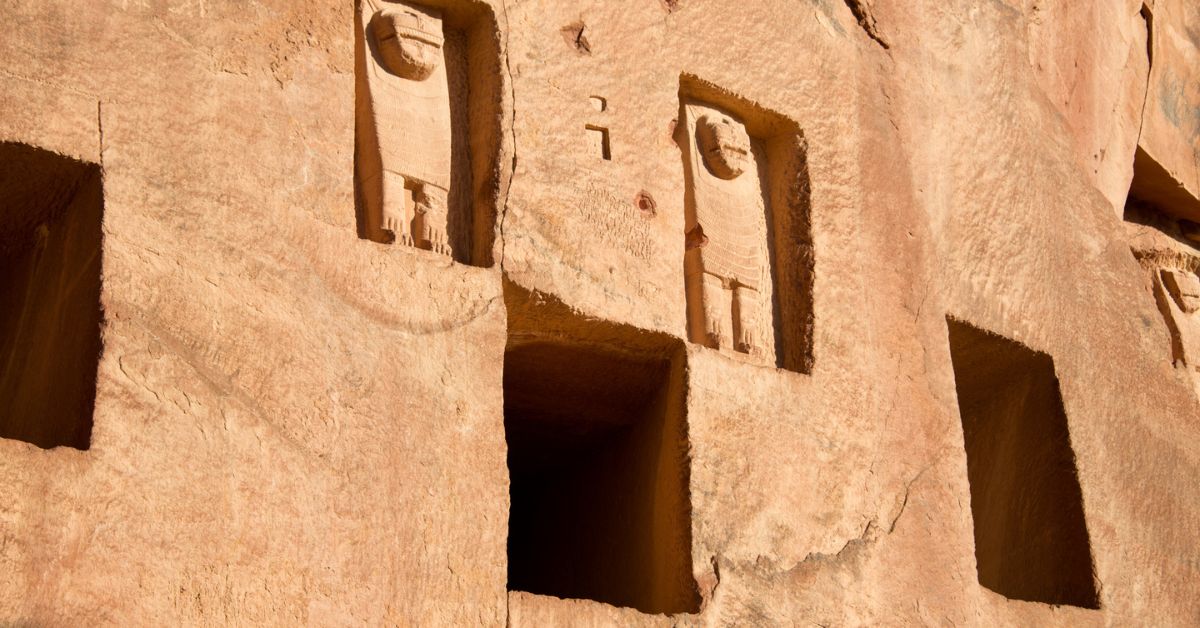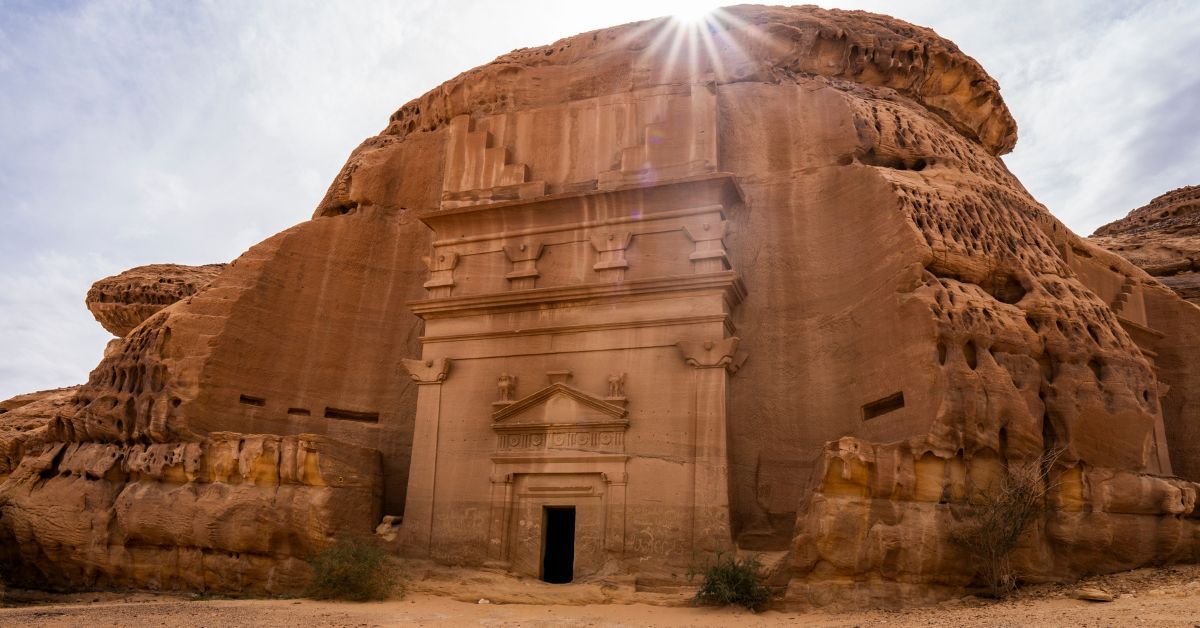RIYADH, SAUDI ARABIA — The inaugural AlUla World Archaeology Summit, set against the breathtaking backdrop of AlUla, Saudi Arabia, has garnered international praise for its revolutionary impact on archaeology and cultural heritage. Organized by the Royal Commission for AlUla (RCU), this pioneering event attracted over 300 delegates from 39 countries, sparking discussions that went beyond traditional archaeological boundaries.
The summit boasted over 80 speakers, 50 youth delegates in the Future Forum, representation from 167 institutions, including 65 universities, and a gender distribution of 47% female to 53% male. Its emphasis on the past’s role in molding the future highlighted archaeology’s potential to shape culture, identity, and societal evolution. Over the two-day event, it was evident that this wasn’t just an academic conference but a transformative experience.
Bridging past and present
Central to the summit was a profound dialogue about archaeology’s role in molding cultural identity and promoting shared human experiences. Dr. Khaled Melliti from France’s National Center for Scientific Research poignantly stated, “Every era of archaeology is contemporary archaeology.” Prof. Emanuelle Papi of the Italian School of Archaeology at Athens echoed this sentiment, emphasizing that we interpret the past through our present-day lens.
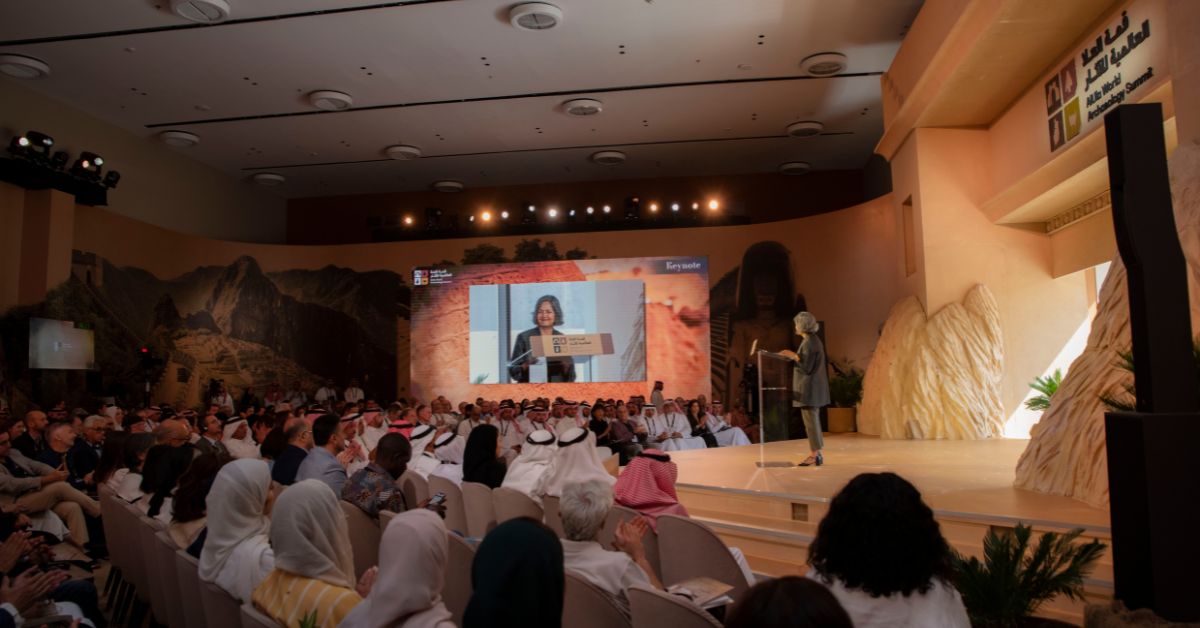
Engaging local communities
The summit consistently highlighted the significance of community involvement in archaeological pursuits. Lucy Semaan, a maritime archaeologist from the Honor Frost Foundation in Lebanon, underscored the importance of consulting local fishermen during underwater explorations. Their insights bridge historical gaps and deepen our grasp of history.
AlUla’s prominence as an archaeological epicenter was evident. The RCU sponsors one of the world’s most extensive archaeological research programs in AlUla and Khaybar. This research has unveiled rich cultural landscapes, including ancient cities, inscriptions in ten languages, and intricate agricultural practices. Notably, AlUla is home to Hegra, Saudi Arabia’s first UNESCO World Heritage Site, designated in 2008.
Interdisciplinary collaboration was a recurring theme, with experts emphasizing that archaeology draws from diverse fields like chemistry, physics, biology, and history. Prof. Shadreck Chirikure from the University of Oxford underscored this interdisciplinary essence.
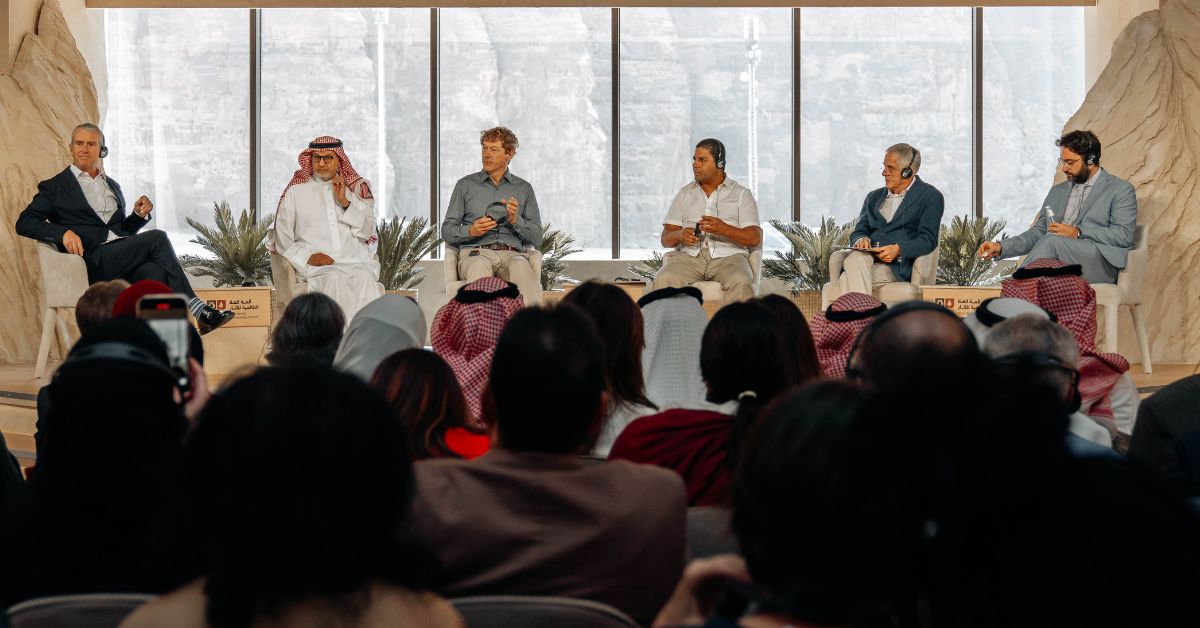
A vision for the future
Nur Sobers-Khan from the Ministry of Culture in Saudi Arabia envisions making archaeology more accessible. By collaborating with contemporary artists to reinterpret ancient cultural landscapes, she hopes to engage the public in novel ways. Prof. Pierre Zalloua of Khalifa University in Abu Dhabi highlighted archaeology’s transformative essence, emphasizing that identity transcends DNA and encompasses language, heritage, and traditions.
The summit’s culmination saw the introduction of a new award for budding archaeologists. The AlUla World Archaeology Summit Award of Excellence, set to be presented at upcoming summits, aims to champion the science of archaeology, as stated by Abdulrahman Alsuhaibani, Executive Director of Archaeology, Conservation, and Collections at RCU.
The AlUla World Archaeology Summit was more than just an academic platform; it was a catalyst for change. It redefined archaeology, emphasizing its dynamic role in shaping cultural identity and our understanding of the present and future. The summit set a new benchmark for how archaeology can resonate with modern society, bridging historical gaps, engaging communities, and promoting interdisciplinary collaboration.
As the summit wrapped up, it was evident that this was just the beginning. The insights and collaborative spirit ignited in AlUla will continue to reverberate throughout the archaeological community and beyond. The summit wasn’t just an event; it was a monumental stride toward the belief that archaeology isn’t merely about studying history but actively shaping it.
Dr. Alsuhaibani said, “This summit was exceptional and unique. We tackled topics crucial to archaeology’s future from a broader perspective – and I hope the conversation continues.”
AlUla: Where Ancient Civilizations Meet Modern-Day Aspirations For a long time, Saudi Arabia wasn't among the most visited countries, yet the Kingdom boasts numerous significant attractions for tourists. AlUla, a previously obscure location in the northwest desert of Saudi Arabia, has recently garnered significant attention. It's been included in a list dubbed "The Seven Wonders of the Modern World" by The Traveler. But what makes this location so special? Ancient History and Remarkable Nature The region reveals 200,000 years of largely undiscovered human history within its sunlit expanse. This includes well-preserved tombs, sandstone formations, and mud brick homes. The AlUla desert lacks trees or even a single blade of grass. The sky stretches out in a vast blue canvas dotted with gray, and the air is tranquil and unexpectedly cool. The ancient kingdoms of Dadan and Lihyan, which controlled the caravan trade, once considered AlUla their capital. Situated in the southern capital of the Nabataean kingdom, Hegra is a UNESCO World Heritage Site renowned for its grand tombs. The Old Town of AlUla seems to have been built atop an even older settlement and is now a deserted labyrinth of streets tightly knit to form a defensive barrier. AlUla also features an Old Town Village that encompasses its historic Old Town, the verdant Oasis, and the AlJadidah Arts District. Every corner of the Old Town is filled with mudbrick homes, shops, and squares. The village and its picturesque desert valley are safeguarded by a fort constructed in the 10th century. Investment Scope AlUla is among the many ambitious projects undertaken by Saudi Arabia as part of its Vision 2030 plan, aiming to modernize the nation and boost tourism. Upon completion of the comprehensive development strategy for the AlUla region in 2035, it's expected to generate 38,000 new jobs, accommodate a population surge of 130,000, and enhance the Kingdom's economic prospects by contributing approximately SAR 120 bn (US$ 32 bn) to the GDP through sectors like tourism, arts, and agriculture. The "Journey Through Time" initiative is the inaugural series dedicated to preserving AlUla's natural and cultural landmarks for future generations. Over SAR 57 bn (US$ 15 bn) will be invested in this endeavor, with SAR 12 bn (US$ 3.2 bn) allocated for the development of essential infrastructure in AlUla. This plan promises unique opportunities to invigorate business and accelerate growth. The strategy also entails introducing an eco-friendly tourist train spanning 46 km (with 22 km planned for the initial phase), boosting clean energy to meet at least 50% of the demand using renewable sources by 2035, and enhancing potable water capacity through a supply system. Advanced water provisions include sourcing from desalination, a tailored water conservation program, augmented wastewater capacity, and an upgrade of the Maghera wastewater treatment facility. Almost Ready for the Surge! The Saudi government has taken numerous measures to position AlUla as a prime tourist attraction and a haven for luxury enthusiasts. The "Ula Fare" service stands out from the standard "airport fare" taxi services in other parts of the Kingdom, underscoring Al-Ula's significance as a tourist hotspot. Over 13,000 vehicles are engaged in the taxi industry, seamlessly integrating with other transportation modes, offering a plethora of choices for users and simplifying their commutes. The "Ula Fare" service, launched to enhance user experience and bolster tourism, is available at the airport for visitors, adhering to top international standards. In collaboration with the Royal Commission for Al-Ula Governorate and the Second Airports Group Company, the Public Transport Authority introduced this service with its fresh identity at Al-Ula International Airport. Simultaneously, the AlUla International Airport underwent expansion, security enhancements, and major tourist sites like the "Ashar" Resort and Maraya Hall were established with a total investment of SAR 7.5 bn (US$ 2 bn). Furthermore, the AlUla Development Company, owned by the Public Investment Fund, initiated its operations to foster and evolve AlUla through real estate advancement and asset management based on a long-term investment strategy. The AlUla Development Company's primary objective is to metamorphose the historic city into a global tourist magnet. It will champion the creation and management of a global infrastructure portfolio comprising hospitality, residential, retail, commercial, and industrial assets. Upcoming projects encompass over 7,500 hotel units, 5,000 residential units, an employee complex with more than 1,000 units, industrial units, supporting infrastructure, and more. (Marcelle Mohamed)


